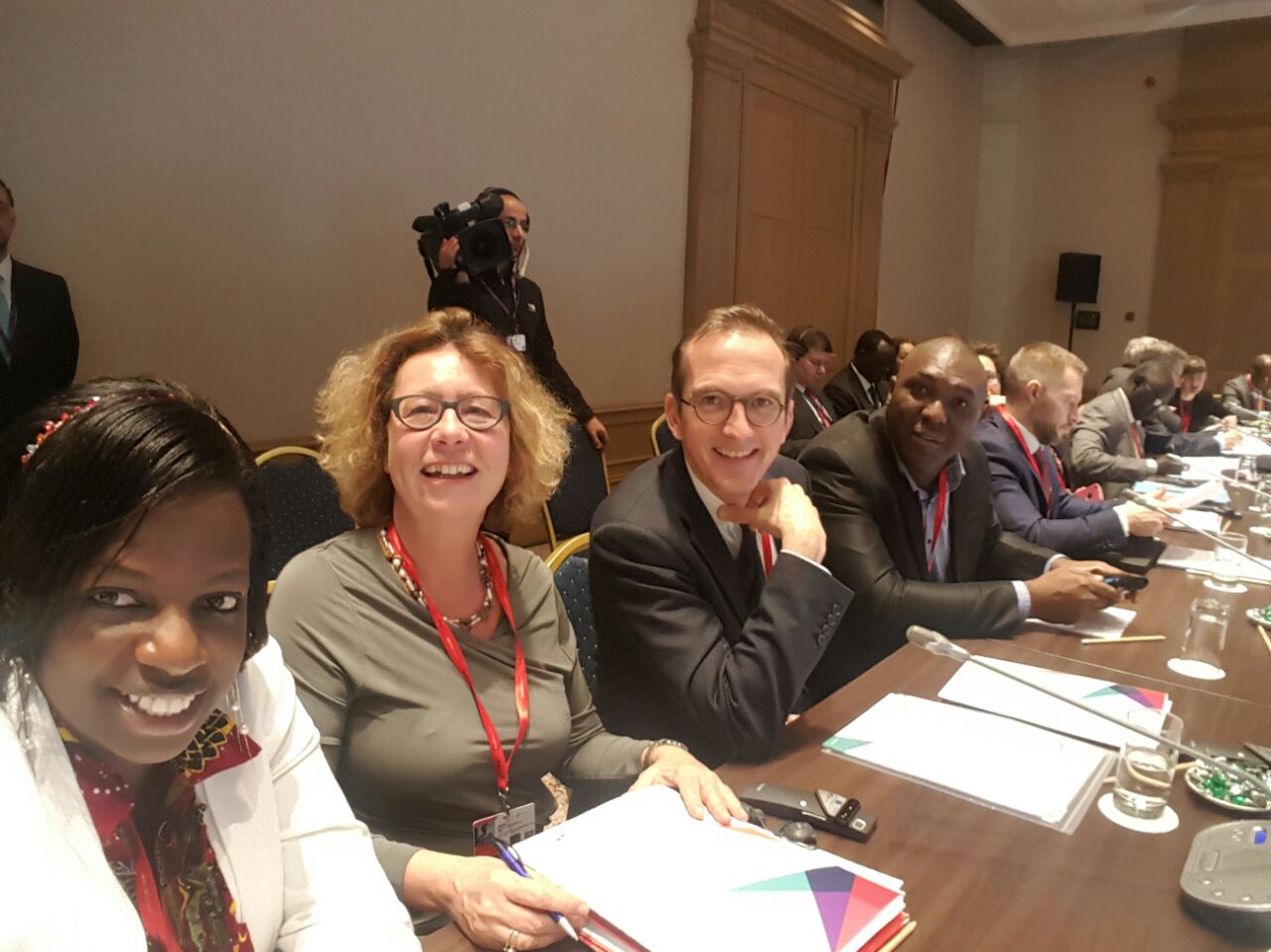
On 8/9 February 2017, four senior representatives of African and European civil society – namely Tabitha Kentaro from the AACC, Samir Abi from the West African Migration Observatory, as well as Petra Hueck, director of ICMC Europe, and Edouard Rodier, director of NRC’s Brussels office - were invited to attend a Senior Officials’ Meeting in Malta, which took stock of the state of implementation of the Joint Valletta Action Plan (JVAP), conceived in November 2015. This invitation demonstrated awareness by all African and European delegations about the necessity to have an inclusive process in order to seek dignified and realistic solutions for the victims of irregular migration.
Against this backdrop, ICMC Europe, together with the MADE Africa Network, had organised a two-part event on 30 January 2017 in Brussels, bringing together over forty representatives of African and European civil society, as well as African and EU officials. During the closed morning sessions, civil society representatives shared their views and concerns on the JVAP and the related political processes, and issued concrete recommendations to participants of the afternoon panels based on the outcomes of three thematic breakout sessions. Those recommendations were debated in two ensuing panel discussions with representatives of the AU, the European Commission, Germany, as well as the government of Mali as the then Chair of the Rabat process.
The purpose of this meeting was to ensure that the experiences and recommendations of African and European Civil Society are incorporated throughout the implementation of the JVAP via its funding instruments, such as the EU Emergency Trust Fund for Africa (EUTF), and to push for a more structured and active engagement of civil society in the processes related to the Valletta Summit.
The event’s thematic foci were based on a survey, conducted by ICMC Europe and MADE Africa among over 80 civil society organisations (of which over 50 are based in Africa) aimed at gaining a better understanding of their experience of the first year of implementation of the JVAP. The results of the survey as well as discussions during the breakout sessions and panel discussions revealed that while the five domains and 16 priority actions under the JVAP were considered to meet civil society demands, several areas invited substantial criticism, namely (1) the lack of transparency and communication in its implementation, (2) the absence of a mechanism to involve civil society actors in a structured manner and provide targeted capacity building where needed, (3) an imbalanced weighing of the different priority domains and (4) the in non-transparent parameters and tools for monitoring and evaluation.
These central points of criticism as well as key recommendations to those actors party to the Valletta process were compiled in a Summary Paper and presented to participants of the Senior Officials Meetings. At its core, the recommendations demanded participating states to Save lives and protect human dignity, to build resilient people and communities, and to engage in a real partnership with civil society. Please find the full conference report here.
This approach builds on previous advocacy initiatives by ICMC Europe, the MADE Networks Europe Chapter as well as MADE Africa surrounding the Valletta Summit in November 2015. In November 2015, in parallel with the political process that gave birth to the Valletta Political Declaration and Action Plan, African and European civil society organisations (CSOs) held their own dialogue and released a set of recommendations.
Mirroring a global effort to take into account local realities and priorities in the shaping of decisions and policies around migration, and development, ICMC Europe hopes to further open up dialogue spaces and opportunities for constructive exchange between Civil Society, governments, regional organisations and institutions and to set a precedent for a more systematic consultation of Civil Society by stakeholders of the Valletta Action Plan and EU Africa Trust Fund. What is needed now is to initiate a true working relationship where the hardships endured by migrants are channeled through civil society organizations and taken into account in policy discussions.
Photo: Tabitha Kentaro